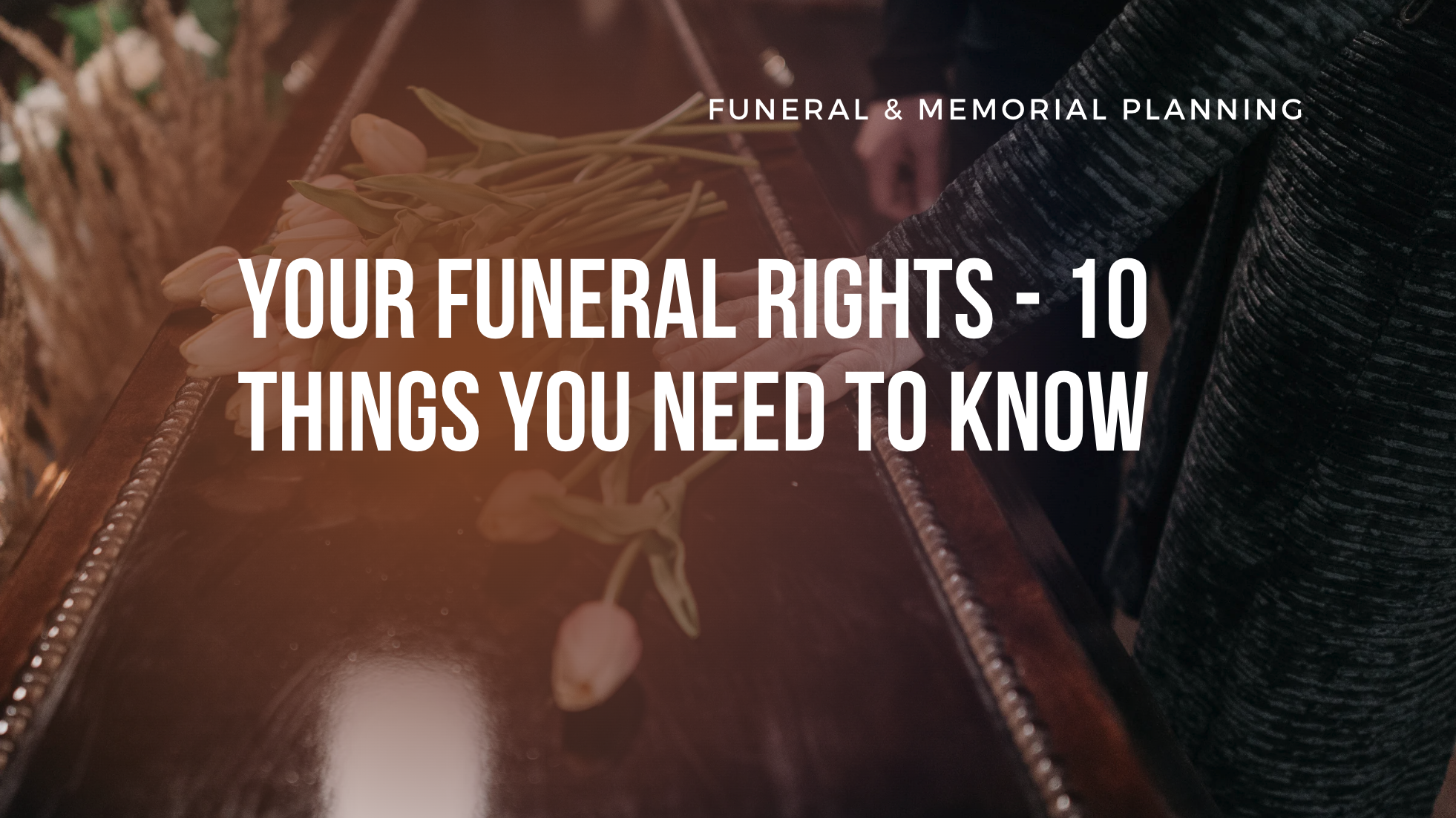Planning a funeral is hard. You’re grieving a loss, navigating complex family dynamics and often trying to balance a budget. It’s important to know your funeral rights before you begin communicating with a funeral home. Knowing your legal rights will save you time and money, and you won't have to worry about being a victim of a funeral scam.
1. Truthfulness - Funeral directors may not tell families that a particular good or service is required by law if it is not. If state or local law requires you to buy any particular item, the funeral provider must disclose it on the price list and reference the specific law.
2. Price Transparency - Under the law, you can request pricing information for services over the phone without giving out your name and contact information. You also have the right to view a written price list of caskets before viewing them.
3. Purchase only what you need - The Federal Trade Commission’s Funeral Rule guarantees your right to buy only the funeral services and goods that you want.
4. Itemized Invoice - Funeral Homes must give you an itemized invoice before you engage their services. There should be no hidden costs or charges added on at a later date.
5. Direct Cremation and Immediate Burial - A funeral director must disclose in writing that you have the right to choose direct cremation or immediate burial, which are lower-cost alternatives.
6. Cremation Urn Options - Funeral homes in the US must accept cremation urns that families purchase elsewhere. You are not required to buy products from the funeral home. You can provide your own as long as it meets state standards.
>>> MORE: Shop our Most Popular Cremation Urns
7. Casket Rental Options - If choosing cremation, you can rent a casket from the funeral home for a service and/or viewing. Families are not required to purchase a casket for cremation. You may use an alternative casket for cremation. Funeral homes are required by law to make these options available to you.
8. Embalming is not Required - The law does not require embalming services for burial or cremation -- typically refrigeration is adequate. Some funeral homes insist on embalming when there will be a viewing. You can ask the funeral director if private family viewing is allowed without embalming.
9. Do-it-yourself - In the majority of states, a family, community or religious group can handle a death without a funeral director. You can do everything on your own or hire a home funeral consultant or death midwife to assist. You can prepare the body, acquire the necessary paperwork, hold a vigil or service, and transport the body to the burial site or crematory.
10. Industry Accountability - If you have a problem concerning funeral matters, it’s best to try to resolve it first with the funeral director. If you don’t feel satisfied with their support, you can file a complaint with your state’s Funeral Board, state Attorney General, or the Federal Trade Commission.
Learning your Funeral Rights - Additional Resource
Shopping for Funeral Services - Federal Trade Commission Consumer Advise
When Shopping for Funeral Services, Be Wary - New York Times
How To Avoid Funeral Home Scams - AARP

